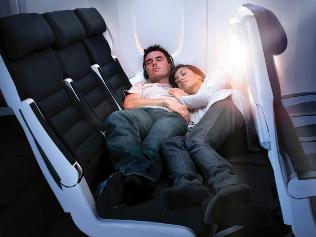Saturday, 31 March 2018
Friday, 14 April 2017
Wiidii : your new personal assistant, anywhere, anytime !
 |
| Your hybrid assistant |
 |
Wednesday, 8 April 2015
My personal experience with the TripCase App voted Best Mobile Travel App
Saturday, 21 March 2015
Ebay, a new canal for the hotel industry?
Source:
Eve Dellinger & Elsa Yenigotchian
Friday, 28 March 2014
Travel Apps
Wednesday, 29 January 2014
Geo-fencing - how tourism and event companies can profit from its mobile usage
Thursday, 28 March 2013
Monument Tracker: A new way to discover cities ?
How it works?
Impact on travel industry
Saturday, 30 April 2011
The Facebook Send button in the travel industry

Mujteba Naqvi, the founder of US-based social travel startup Bonvoy wrote an article on “How the travel agencies can make the most of Facebook Send”.
Celebrating its most successful year, the Facebook Like button has been incorporated through more than 2.5 million websites. Although email is still the largest and most personal social network, the Facebook Send button might just shatter that gap.
Facebook gives us the ability to click a button which helps in sharing contents with whomever we want on Facebook.
Mujteba Naqvi believes that the Facebook Send button has to be also adopted in travel industry, which will help in sharing hotel and trip information. For instance the review sites such as TripAdvisor or Yelp can integrate it so users and their friends can exchange information whilst tapering the field of choices or activity and tour websites like Viator and Trafalgar need the button so friends can discuss what they should do while on their trip. Moreover flash sales sites like Jetsetter or LivingSocial integrate it so that a user can send their deals to a friend with whom they wish to go on a trip, as well as airline, hotel, and car companies should implement this so loyal customers share directly from their sites.
As an entrepreneur in the social travel industry Mujteba Naqvi finds it overwhelming that Facebook validates what they have already been doing at Bonvoy.
Bonvoy is supporting groups of friends on cooperation around any topic, while they have been assisting travel collaboration and planning for groups of friends within Facebook as an app. They are expecting Facebook to continue to integrate, thus giving users the opportunity to be selective with their social graph. “It will be exciting to see how travel sites use the Send button, I can envision friends kicking off trip planning or estimating costs”, says Mujteba Naqvi.
He considers that the mission of most travel websites is to make travelers’ experiences better and he anticipates that the Send button will help in this development and will enjoy scores of success.
It has been explained how Facebook's Send application can be used for the travel sector, it's use divers and useful, it is still not explained how it can be implemented into the events sector and how it will impact it?
For the time being is hard to actually predict how the Send button will affect and influence the events environment, but one thing seems very clear. Facebook will make itself known to that sector shortly. What do you think?
Thursday, 31 March 2011
New "cuddle class" for Air New Zealand

When booking a flight from point A to point B, the customer has the option to book either economy or business class. Economy is cheaper and offers little space to make oneself comfortable, while business is most of the time unreachable for the average traveler, due to its price, but offers a bit more legroom and higher service quality. But the question remains; what will the average traveler do to be able to have a bit more comfort for a reasonable cost now a days? The answer to this question is provided by Air New Zealand. Beginning with the 2nd of April the current year, the airline will introduce the so-called “cuddle class”.
The “cuddle class” is meant for couples or for kids that are boarding a long haul flight. With the touch of a button, the footrest will come out of the three seats, the armrest will disappear between the seats, converting the space to a bed similar seating area where one can get some rest during the flight. These seats are only available for a couple, not allowing two strangers to share this “coach”.
Price wise, Air New Zealand, will try to keep it as flexible as possible, meaning that for the purchase of the three seat row, the couple will pay the economy price for the two seats, plus 50% of the economy price for the third one.
It seems very convenient to be able to buy three seats with your partner and have a make shift bed, but this innovation raises a few questions and problems.
1. How many can get this seating area? For the moment it is mentioned that only the Boeing 777-300 aircraft will be converted to have the seating area, yet it fails to mention how many will be installed and available. In long haul flights, most of the passengers travel with their families, meaning the couple plus children. Although the upgrade is done online, how will the airline guarantee that all the travelers have access to this type of seating?
2. Will this modification prompt airlines to purchase new aircrafts that can sustain this type of seating? As mentioned before the demand for the “cuddle coach” might not be sufficient for the supply that the airline has. It is only safe to assume, that the airline might be forced to order specific build aircrafts.
3. What are the economic impacts on the airline? With only a few rows of this new seating, the airline might be forced to take out standard economy seats to make way for the “cuddle coach”. This in a way might impact the traveler since the number of sold seats is diminished, potentially leading to a fail in the selling of the seats.
4. What is the impact on the business class? With this new type of seating, business travelers that travel in two’s might see it as more affordable to buy three seats in economy instead of two seats in business. This might lead to lower number of seats sold and it also forces the airline to come up with alternatives to attract the business traveler once again.
As a conclusion, it can be said that the “cuddle class” is an interesting alternative with the potential to become indispensable and lead to new developments in the airline industry.






